17.12.2020.
Exhibition “Concentration Camp Jasenovac 1941-1945“ opened in Central Military Club
Deputy Prime Minister and Minister of Defence Nebojša Stefanović, PhD, said today at the opening of the multimedia exhibition “Concentration Camp Jasenovac 1941-1945“ in the Central Military Club’s Grand Gallery, that we must not allow death and suffering of hundreds of thousands of Serbs, Jews, Roma and other people in this death camp to be relativized and consigned to oblivion.
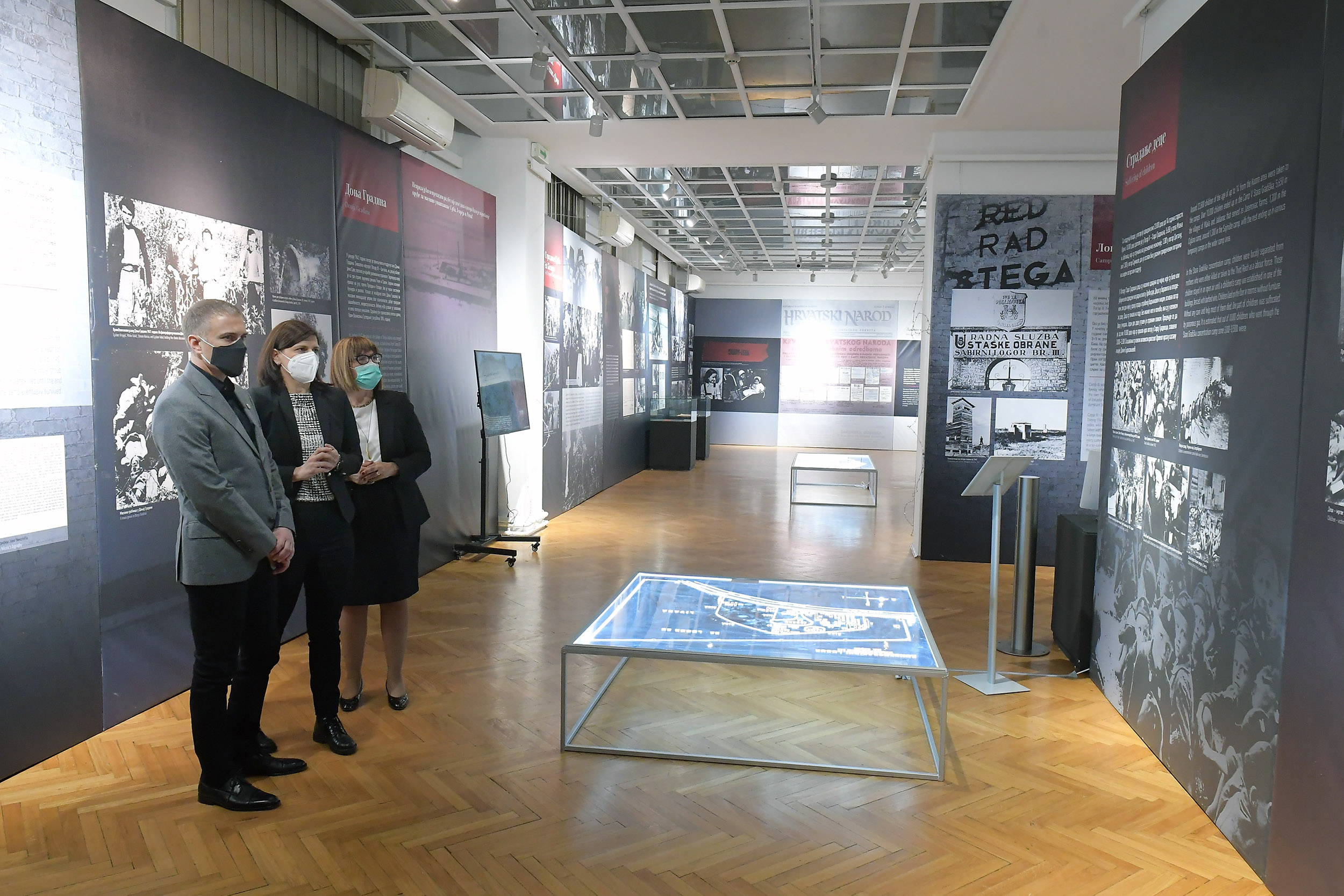 The opening of this rich and varied exhibition commemorates the 75th anniversary of the breakout of the last group of prisoners from the Ustaše-operated death camp in Jasenovac – Donja Gradina in the Independent State of Croatia, and the guests were addressed by the Minister of Defence, Deputy Prime Minister and the Minister of Culture and Information Maja Gojković and Ms TanjaTuleković, the director of the Public Institution “Donja Gradina Memorial Site”, Republika Srpska.
The opening of this rich and varied exhibition commemorates the 75th anniversary of the breakout of the last group of prisoners from the Ustaše-operated death camp in Jasenovac – Donja Gradina in the Independent State of Croatia, and the guests were addressed by the Minister of Defence, Deputy Prime Minister and the Minister of Culture and Information Maja Gojković and Ms TanjaTuleković, the director of the Public Institution “Donja Gradina Memorial Site”, Republika Srpska.At the beginning of his address, Minister Stefanović pointed out that the Jasenovac camp was a difficult topic for us, and that the account of the survivor, Mr Milan Vukmirović, who had been taken from Kozara to the camp as a seven-year old boy testified best to his horrors. Mr Vukmirović says that for 75 years not a day has gone by without his thinking about the horrible scenes.
- There is no peace or oblivion for the people who managed to survive. That is why we have an obligation not only to remind ourselves of the horrors that took place in the so-called Independent State of Croatia, but not to allow the crimes that took place in Jasenovac to be forgotten - Minister Stefanović emphasized.
The Minister of Defence said that we must not allow death and suffering of hundreds of thousands of Serbs, Jews, Roma and other people in this death camp to be relativized and consigned to oblivion.
- The Jasenovac camp is a symbol of the downfall of humanity, a criminal pit that devoured and wiped out not only entire families, but also tried to obliterate an entire nation. It sentenced the survivors to life with horrible memories, and you are witnesses to the fact that they have often tried to present this camp as a labour camp - Minister Stefanović pointed out, adding that it was nolabour camp and that the whole world knew its horrors.
Minister Stefanović also noted that the so-called NDH (Independent State of Croatia) had been unique even among the fascist countries in that it had children’s death camps, which had not existed anywhere else.
- Maybe because these children were Serbian, Jewish and Romani, today some are trying to erase the fact from the European memory, but this exhibition serves, among other things, as a reminder that such things should never be forgotten - Minister Stefanović pointed out.
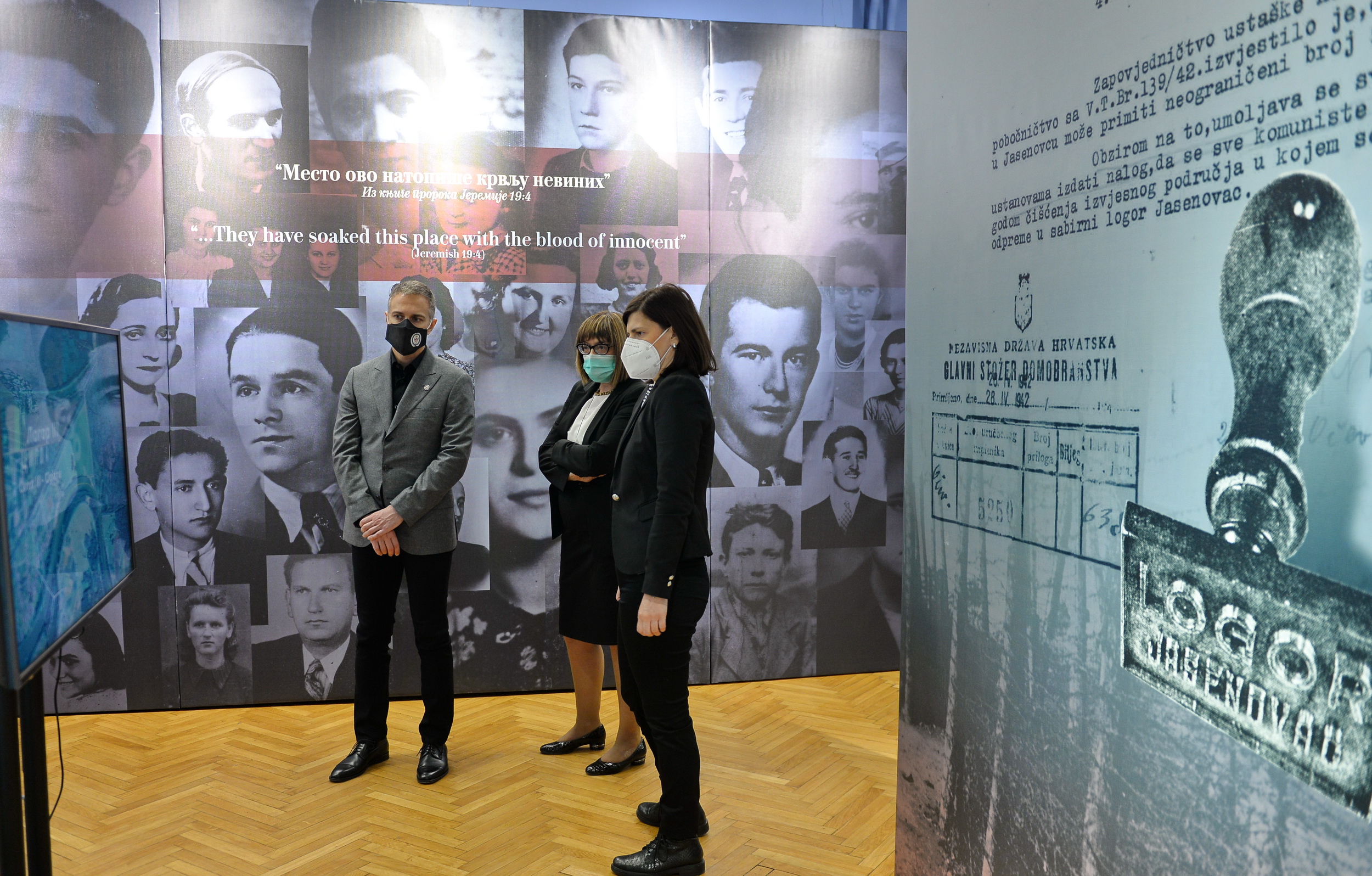 He emphasized that we had an obligation to the victims, their descendants, but also to our people, whose history we were proud of, to preserve the visibility of all these people, both of those who had been killed in the camps and those who had survived, for the benefit of the future of Serbia and the entire humanity, so that no one would ever try to seek excuses for a children’s camp or a camp such as Jasenovac and to relativize this type of crime.
He emphasized that we had an obligation to the victims, their descendants, but also to our people, whose history we were proud of, to preserve the visibility of all these people, both of those who had been killed in the camps and those who had survived, for the benefit of the future of Serbia and the entire humanity, so that no one would ever try to seek excuses for a children’s camp or a camp such as Jasenovac and to relativize this type of crime.- This year, when we mark the 75th anniversary of the world’s victory over fascism, the victory in the Second World War and the breakout of the last group of Jasenovac camp prisoners, we wanted this exhibition to contribute to the remembrance. At the exhibition organized by the Ministry of Defence together with the Ministry of Culture and Information and our dear friends from Republika Srpska’s institution "Donja Gradina Memorial Site", you will have the opportunity to see why theremembranceof all these horrible crimes is important, not only for our people, but also for the whole of humanity - said Minister Stefanović.
Speaking about the significance of this exhibition, Minister Stefanović concluded that although we rememberedthispainful testimony of our history, our past, it also reminded us of how important that remembrance was for our future, for the peace and stability that Serbia had always wanted.
Minister Gojković emphasized that this year, when we were marking the 75th anniversary of the liberation of the infamous camp, it was our obligation to remind everyone,with that exhibition, of one of the most distressing places in the entire history of the Serbian people, but also to promote the culture of remembrance as an important part of national and cultural identity.
- Guided by that idea, we have organized this exhibition together, which depicts the cry for freedom, and on the other hand gives a realistic and horrific depiction of life in this concentration camp. The Serbian people have paid a huge price for freedom through many historical events and tragedies - said Minister Gojković and added that Serbia and its citizens were recognized throughout the world as a proud and brave nation that was always ready to stand firmly by the principles of freedom and justice.
According to her, exhibitions like this did not only serve as reminders that such a deep trace left by a tragedy could never be forgotten.
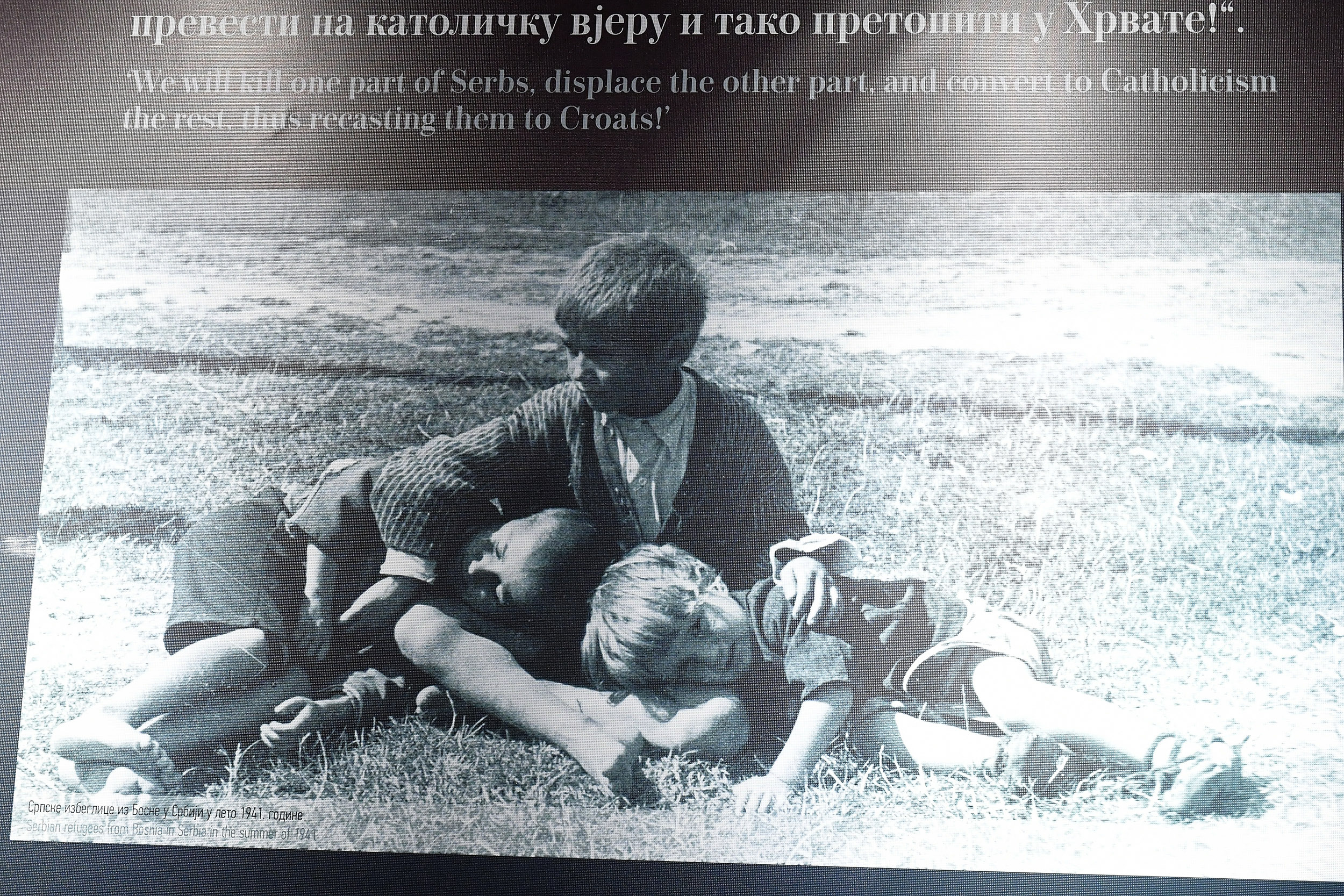 - Authentic depictions of the greatest evil that befell humanity are extremely important not only because of the attempts to deny and relativize the crime in the modern age, but also to give present and future generations a true picture of what happened in this region in the Second World War. The photographs, documents and words in front of us are not just a part of memory, they are a living warning that we must persistently, bravely, patiently and wisely fight for a world in which there will be no place for such evil - said the Minister of Culture and Information.
- Authentic depictions of the greatest evil that befell humanity are extremely important not only because of the attempts to deny and relativize the crime in the modern age, but also to give present and future generations a true picture of what happened in this region in the Second World War. The photographs, documents and words in front of us are not just a part of memory, they are a living warning that we must persistently, bravely, patiently and wisely fight for a world in which there will be no place for such evil - said the Minister of Culture and Information.Tanja Tuleković pointed out that the exhibition consisted of several parts that gave an overview of historical events in chronological order. She thanked all the associates who participated in this extremely important exhibition in the year when the 75th anniversary of the Jasenovac camp breakout was being marked, and ended her address with the sentence "Let it not happen ever again."
Exhibition "Concentration Camp Jasenovac 1941-1945”is open until 13 February 2021.
 PHOTOGALLERY
PHOTOGALLERY VIDEOGALLERY
VIDEOGALLERY
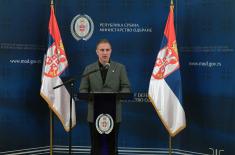
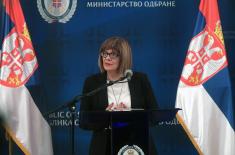
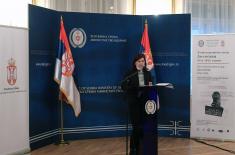
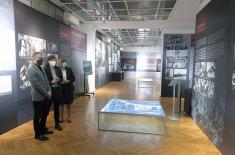
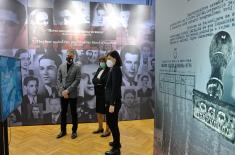
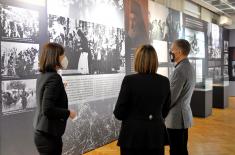
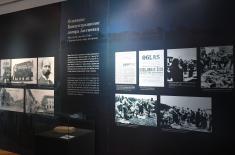
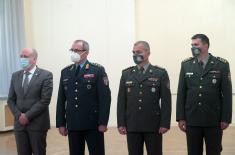
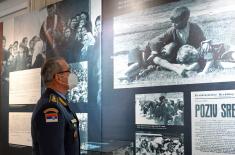
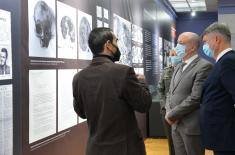
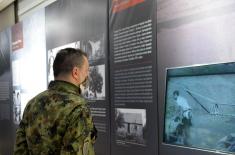
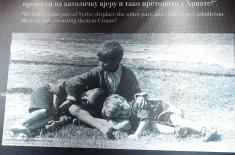
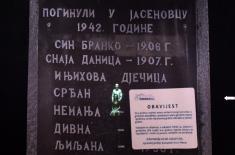
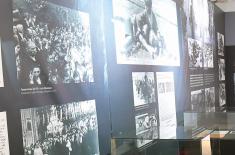
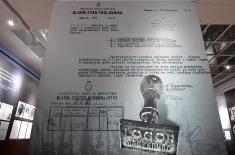
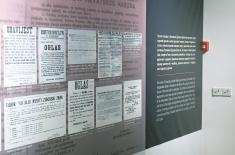
 mp4
mp4 